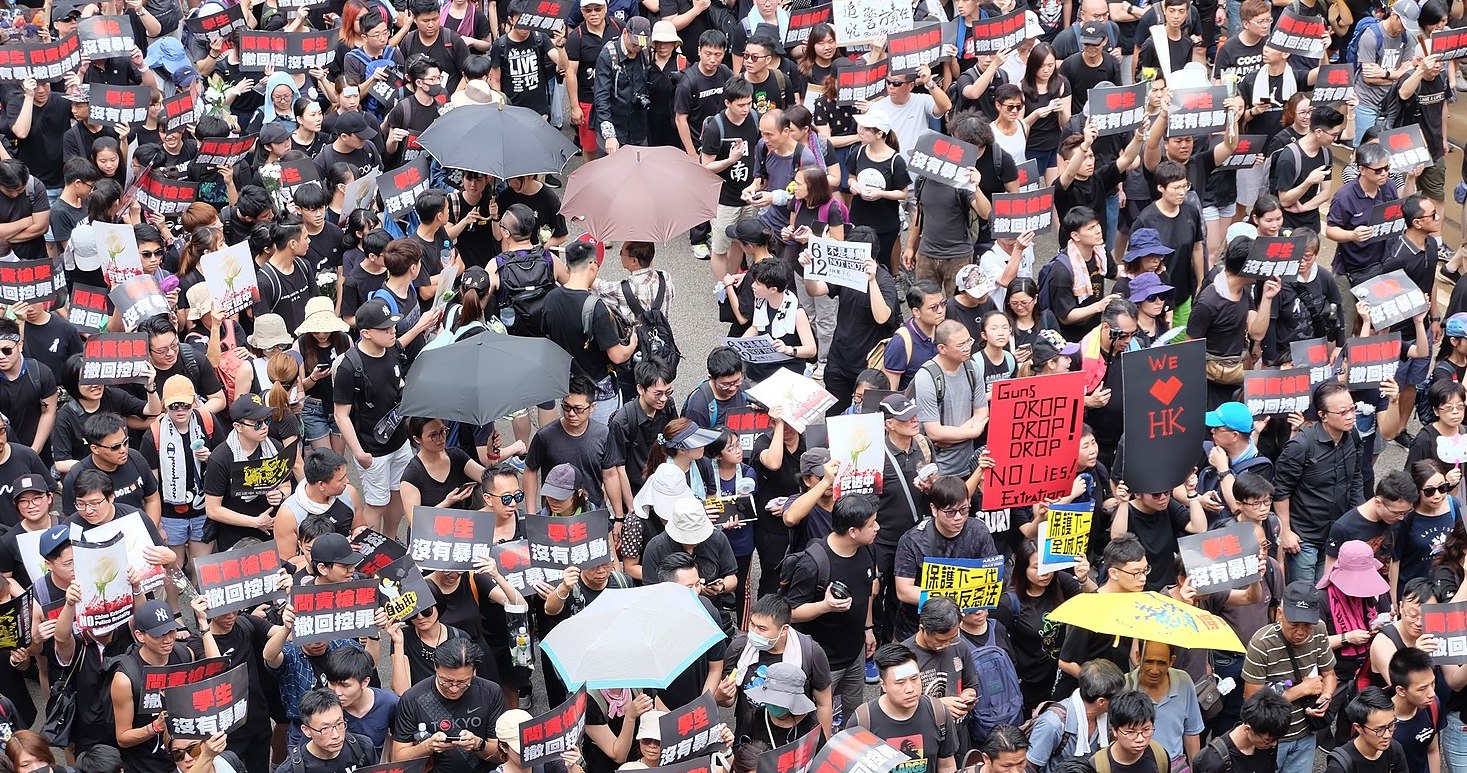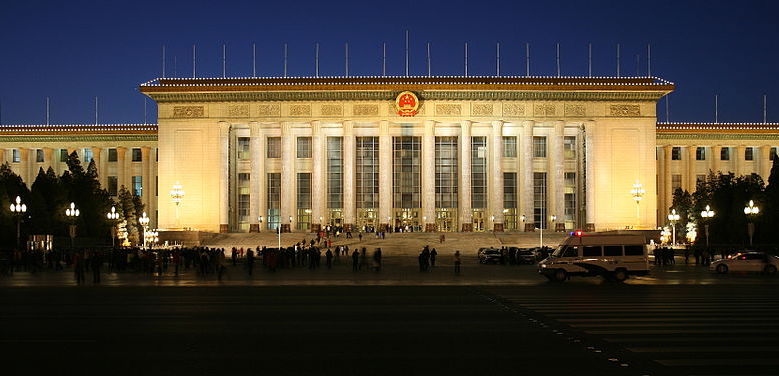Hong Kong’s national security law: what it means for Chinese intelligence gathering capabilities

Following the passing of Hong Kong national security Bill at the recently concluded National People’s Congress, a number of countries, including the United States, United Kingdom, Australia and Canada expressed concern at Beijing’s actions, which run against the commitments made under the Sino-British joint declaration. According to a statement made by the foreign ministers of the four countries, the national security law would undermine the “one country, two systems framework” and “undermines existing commitments to protect the rights of the Hong Kong people.”
What is not clearly said, however, is that under the provisions of this national security law, Chinese intelligence agencies could set up their bases in Hong Kong, thus placing the intelligence gathering efforts of many Western agencies that are based in there, at risk. The four countries mentioned above (plus New Zealand) are members of the Five Eyes Alliance, a multilateral arrangement which facilitates the sharing of classified signals intelligence among its five member states.
According to leaks by the former CIA whistle-blower Edward Snowden, the United States had been hacking into computers in Hong Kong and on the mainland for years. With the passing of the law, I argue that this national security law is targeted not just simply at the protest movement in Hong Kong, but more crucially, to strike at the heart of what Beijing sees as the efforts by Western governments, using Hong Kong to gather intelligence and subverting its political system.
Historical context of Hong Kong’s position as intel hub
According to Daniel Fung, Hong Kong member of the Chinese People’s Political Consultative Conference the idea of the security law is to establish a security agency similar to that which existed when Hong Kong was a British colony. Back in those days, Hong Kong was a hotbed of intelligence activities with agencies attempting to use the city as a base, with which to spy on mainland. These include key players such as the American Central Intelligence Agency (CIA), British Secret Intelligence Service (MI6), the Soviet Union KGB and even the Israeli Mossad.
All these agencies attempted through a mixture of covert and overt means to obtain information about China and other countries within the region. Given Hong Kong’s reputation as a generally open-minded, liberal and highly cosmopolitan city, but with the advantage of a strong legal system – it was an ideal environment for intelligence agencies to operate within. Agents could easily blend in with the local population – using front companies – without calling too much attention to themselves or their actual businesses. At the same time, they could operate in relative security and did not have to worry too much about their personal safety and security in the course of their daily work.
One major operation in Hong Kong involving intelligence agencies was during the 1989 Tiananmen Square protests. Following the Chinese government crackdown on student protestors, a number of Western intelligence agencies including the CIA and the MI6 were involved in aiding Chinese dissidents to escape arrest by the Chinese government through an elaborate effort (Operation Yellowbird). Using Hong Kong as a base, and through their contacts on the mainland, these intelligence agencies were able to subvert the Chinese security apparatus to obtain the safe passage of these dissidents out of the mainland.
Since the late 90s, the interconnectivity between China and the rest of the world means that countries no longer have to rely exclusively on Hong Kong to conduct their spywork and are able to operate, albeit with more restrictions and danger, on the mainland. At the same time, growing Chinese power and competition with the United States (and the West) have resulted in crackdown on intelligence operations on the mainland in the past decade. According to the New York Times, the Chinese government had systematically dismantled CIA spying operations in the country since 2010, killing or imprisoning more than a dozen sources over two years and crippling intelligence gathering there for years afterward.
While there have been no publicized cases of other Western intelligence agencies being compromised on the mainland, given Beijing’s suspicion of the West, it would not be surprising if members of the Five Eyes are given greater attention by the Chinese domestic security apparatus. Given these challenges of operating on the mainland, Hong Kong retained its value of being a gateway in and out of China. It also had the added advantage of not being subjected to the Great Firewall, and potentially being exposed to Chinese domestic surveillance. While spy agencies are unlikely to send sensitive information using the internet, having to navigate these firewall restrictions on the mainland means that Hong Kong remains an attractive destination for spy agencies to operate with relatively impunity – subjected only to those of Hong Kong’s law enforcement authorities.
Rationale for the National Security Law from an intel perspective
All these would change significantly with this enactment of the national security act. For one, it allows China to set up intelligence bases in Hong Kong thus giving it greater leverage and oversight on spying activities there, and consequently, the ability to constrain and disrupt the work of foreign operatives. Also with this law in place, there is a likelihood that Beijing would step up its surveillance work in Hong Kong, including the number of spies and counter intelligence operatives working there.
While non-Chinese spy agencies will continue to develop new techniques of evading Beijing’s security forces, obtaining good intelligence becomes potentially more difficult and risky. Lastly, this national security law could also jeopardize and compromise existing intelligence collection, particularly those pertaining to human sources and technical collection.
Sophisticated means of electronic collection can be dismantled by Beijing if it so wishes, and information leaks by mainland sources to Hong Kong can now be plugged, thus allowing the Chinese Communist Party greater control of the information domain. The presence of Chinese security apparatus in Hong Kong could potentially change the information terrain of the city. The Chinese saying that “the mountains are high and the Emperor is far away” has traditionally afforded Hong Kong and its people substantial autonomy from the political influence of Beijing, but this may all change under the enactment of the new law. US President Donald Trump hinted at the increased risk of traveling in the future to Hong Kong – which ostensibly also covers travels made by spies – referring to the “increased danger of surveillance and punishment by the Chinese state security apparatus.”
All these would mean we are likely to see significant changes in the political composition of Hong Kong society in the coming years. As the 2016 impounding of Singapore’s motorized infantry vehicles in Hong Kong had shown, it is well within Beijing’s rights to use Hong Kong and the city’s institutions to carry out its political and diplomatic work. With this national security act, spy work in Hong Kong is likely to come under greater Chinese scrutiny and with that, greater risk.
Benjamin Ho is Assistant Professor at the China Programme, S. Rajaratnam School of International Studies (RSIS), Singapore. He received his PhD from the London School of Economics. His research focus includes the study of China’s international relations, with an emphasis on Chinese political worldview and exceptionalism thinking. Other areas include public theology, intelligence studies and security multilateralism.



